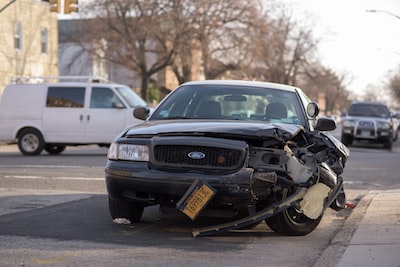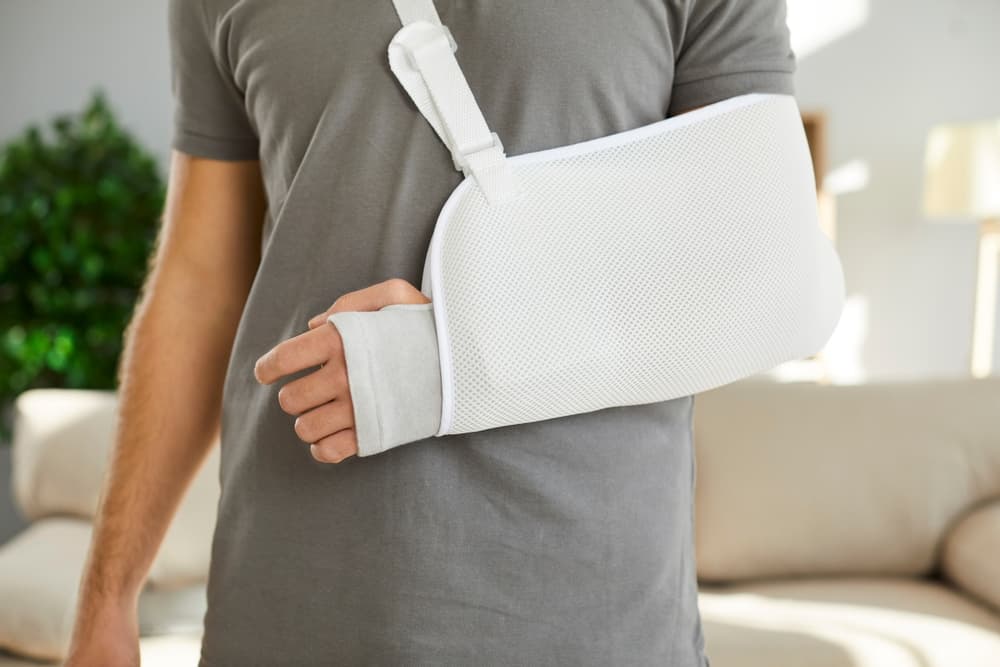What To Expect Physically After A Car Accident
 Car accidents can be traumatic experiences that leave a lasting impact on the body and mind. Even minor fender benders can cause physical injuries that may not surface until days or weeks later. In this blog post, we will help you understand the physical effects of car accidents and what to expect regarding short-term and long-term effects. We will delve into the common injuries that can result from a car accident and how to recognize their symptoms, from bruises to fractures and internal injuries. We’ll also cover the emotional impact of car accidents, such as PTSD and anxiety, as well as steps to recovery, including seeking prompt medical attention, following a treatment plan, and claiming compensation for your damages. Read on to learn more about what to expect physically after a car accident.
Car accidents can be traumatic experiences that leave a lasting impact on the body and mind. Even minor fender benders can cause physical injuries that may not surface until days or weeks later. In this blog post, we will help you understand the physical effects of car accidents and what to expect regarding short-term and long-term effects. We will delve into the common injuries that can result from a car accident and how to recognize their symptoms, from bruises to fractures and internal injuries. We’ll also cover the emotional impact of car accidents, such as PTSD and anxiety, as well as steps to recovery, including seeking prompt medical attention, following a treatment plan, and claiming compensation for your damages. Read on to learn more about what to expect physically after a car accident.
Understanding the Physical Impact of Car Accidents
Car accidents can result in serious physical injuries and trauma. The force of impact in car accidents can lead to various types of injuries, both visible and invisible. It’s essential to understand the physical impact of car accidents on the human body for proper treatment and recovery. The accident’s severity plays a significant role in determining the extent of the injuries. Therefore, if you’ve been in an auto accident, it is crucial to seek medical attention and consult with a car accident lawyer for a free consultation. They can guide you on the necessary legal action and help you navigate the complexities of personal injury claims. By working with experienced attorneys, you can ensure that you receive the compensation you deserve for your pain and suffering.
The Common Physical Injuries Post Car Accidents
Car accidents often result in a variety of physical injuries. Commonly seen injuries include whiplash, fractures, and bruises. Soft tissue injuries such as sprains and strains are also prevalent. Head injuries, including concussions and traumatic brain injuries, can occur due to the impact of car accidents, while back and neck injuries, like herniated discs, are frequently experienced. It’s important to note that car accidents can also lead to internal injuries, such as abdominal trauma. Seeking prompt medical attention and the guidance of an experienced attorney can make a significant difference in navigating the aftermath of a serious accident.
Identifying the Symptoms: Immediate and Delayed
Recognizing the signs of car accident injuries is crucial for proper diagnosis and treatment. After a car accident, immediate symptoms may include pain, swelling, and loss of motion. However, delayed symptoms, such as back pain, neck pain, shoulder pain, and headaches, can appear hours or even days later. Regardless of whether symptoms are immediately present, seeking medical attention is important. Some car accident injuries, like internal bleeding, may not have obvious symptoms, highlighting the need for medical evaluation. By identifying these symptoms, healthcare professionals can determine the severity of the injury and provide appropriate care every step of the way.
The Pain and Discomfort: Short-term Effects
Car accidents can result in severe pain and discomfort, which can significantly impact the physical well-being of the victims. The short-term effects of such pain and discomfort can disrupt daily activities and reduce the overall quality of life. To alleviate these symptoms, car accident victims must seek proper medical treatment and pain management. In some cases, physical therapy may be recommended to restore range of motion and functionality. Understanding these short-term effects can help victims receive the necessary medical care and support.
Recognizing Visible Injuries: From Bruises to Fractures
Visible injuries, such as bruises, cuts, and abrasions, are common after car accidents. Fractures, including broken bones, can also occur due to the impact. Recognizing and documenting these visible injuries is important for insurance claims and legal purposes. Medical treatment may be necessary for these injuries, including casts, splints, or surgical intervention. Providing proper medical care and treatment for visible injuries can significantly aid in the recovery process for accident victims.
Dealing with Invisible Ailments: Internal Injuries
Car accidents can lead to internal injuries that may not be immediately apparent, but they can have serious consequences. These invisible ailments include internal bleeding, organ damage, and spinal cord injuries, which can have long-lasting effects on the body. Seeking prompt medical attention is vital for the early detection and treatment of internal injuries. Diagnostic tests such as X-rays, CT scans, or MRIs may be necessary to identify these hidden injuries. Dealing with these invisible internal injuries requires careful medical evaluation and personalized treatment plans.
Living with the Aftermath: Long-term Effects
Car accident injuries can have lasting physical effects that significantly impact the daily lives of victims. Common long-term effects include chronic pain, reduced mobility, and physical limitations. However, with proper medical care, physical therapy, and pain management, victims can learn to cope with these effects. In some cases, rehabilitation programs, adaptive equipment, or assistive devices may be necessary for long-term recovery. Understanding the potential long-term effects of car accident injuries can help victims and their families plan for the future. Remember that seeking the assistance of experienced car accident attorneys can make a significant difference in navigating legal processes.
Managing Chronic Pain and Reduced Mobility
Dealing with the aftermath of a car accident often involves managing chronic pain and reduced mobility. Chronic pain is a common long-term effect of car accident injuries, requiring ongoing medical attention. Physical therapy, pain medication, and alternative treatment options can help in managing chronic pain effectively. Reduced mobility, range of motion, and physical function may require specialized therapy or treatment plans. Additionally, assistive devices like wheelchairs, crutches, or braces may be necessary to improve mobility. A comprehensive and personalized treatment approach is crucial in managing chronic pain and reduced mobility efficiently.
Mental Health Challenges: PTSD and Anxiety
Car accidents can have a profound impact on individuals’ mental health, leading to challenges like post-traumatic stress disorder (PTSD) and anxiety. The emotional distress experienced after such accidents can have long-lasting effects on victims’ well-being. Individuals must seek therapy, counseling, or join support groups to cope with these mental health challenges. Recognizing the symptoms of PTSD and anxiety is important for timely intervention and treatment. Mental health care, alongside physical care, plays a significant role in the overall recovery of car accident victims.
Steps to Recovery Post Car Accident
Prompt medical attention is crucial after a car accident, even if injuries aren’t immediately apparent. It’s important to follow the recommended treatment plan, which may include physical therapy and pain management, to facilitate effective recovery. Documenting injuries, symptoms, medical bills, and treatment received is essential for insurance claims and legal purposes. If necessary, seek legal consultation to understand your rights and options related to car accident injuries. Take care of your physical and emotional well-being by practicing self-care and leaning on the support of loved ones throughout the recovery process.
Importance of Seeking Prompt Medical Attention
Seeking immediate medical attention after a car accident is vital for identifying internal injuries and preventing the worsening of symptoms. It also ensures accurate documentation of injuries for insurance claim purposes and allows for early detection and treatment of common car accident injuries. Prompt medical care addresses pain, physical symptoms, and emotional distress, making a significant difference in the recovery process. Remember, every car crash is unique, and even if you don’t initially experience severe symptoms, getting a thorough medical evaluation is always a good idea. If you’re unsure about your legal options or need support, consult an experienced personal injury attorney for a free consultation. Their careful attention and expertise can guide you through the legal process, enabling you to take the necessary steps toward a full recovery.
Following a Treatment and Rehabilitation Plan
Following the guidance of medical professionals and adhering to a structured treatment plan is crucial for car accident victims on their journey to recovery. Consistent medical care and therapy can help regain range of motion and physical function, especially for soft tissue and spinal cord injuries. Moreover, diligent follow-up with the treatment plan can aid in managing chronic pain caused by car accident injuries. By staying committed to the recommended course of action and seeking medical help, individuals can resume their normal activities faster and experience an improved quality of life.
Navigating the Legal Aspects: Claiming Compensation
Navigating the legal aspects of claiming compensation after a car accident can be a complex process. Documenting medical expenses and other costs is crucial for the compensation claim, as it provides evidence of the financial impact. Consulting with a personal injury lawyer is important to understand legal rights and ensure full compensation for financial losses. Seeking legal representation from a skilled legal team can help navigate the complexities of the legal process, making the journey more efficient. An experienced attorney can gather the necessary evidence to support the compensation claim, ensuring a strong case.
Documenting Medical Expenses and Other Costs
Keeping track of medical bills, therapy expenses, and other costs is crucial for your compensation claim. Thoroughly documenting these expenses helps you seek reimbursement from insurance companies and claim compensation for the economic impact of the accident. It also strengthens your case by providing evidence of the financial losses incurred. Make sure to keep a record of all medical bills, transportation costs, and related expenses. This documentation is essential for the legal process and will be beneficial with the assistance of a professional car accident lawyer who can guide you through every step.
Can a Personal Injury Lawyer Help You Get Justice?
Seeking the guidance of a personal injury lawyer is crucial for car accident victims seeking justice. They provide legal advice, protect victims’ rights, and increase the chances of receiving full compensation. Consulting with a knowledgeable lawyer ensures an understanding of legal options and helps build a strong case.
Conclusion
If you have been involved in a car accident, it’s crucial to understand the physical impact it can have on your body. From immediate symptoms to long-term effects, it’s important to recognize and address any injuries. Seek prompt medical attention and follow a treatment plan to ensure proper recovery. Don’t overlook the importance of your mental health as well, as car accidents can lead to PTSD and anxiety. If you’re facing challenges in navigating the legal aspects and claiming compensation, consider consulting with a personal injury lawyer at The Sampson Law Firm, who can help you get the justice you deserve. Remember, your health and well-being should be your top priority after a car accident. If you need assistance, don’t hesitate to contact us.

